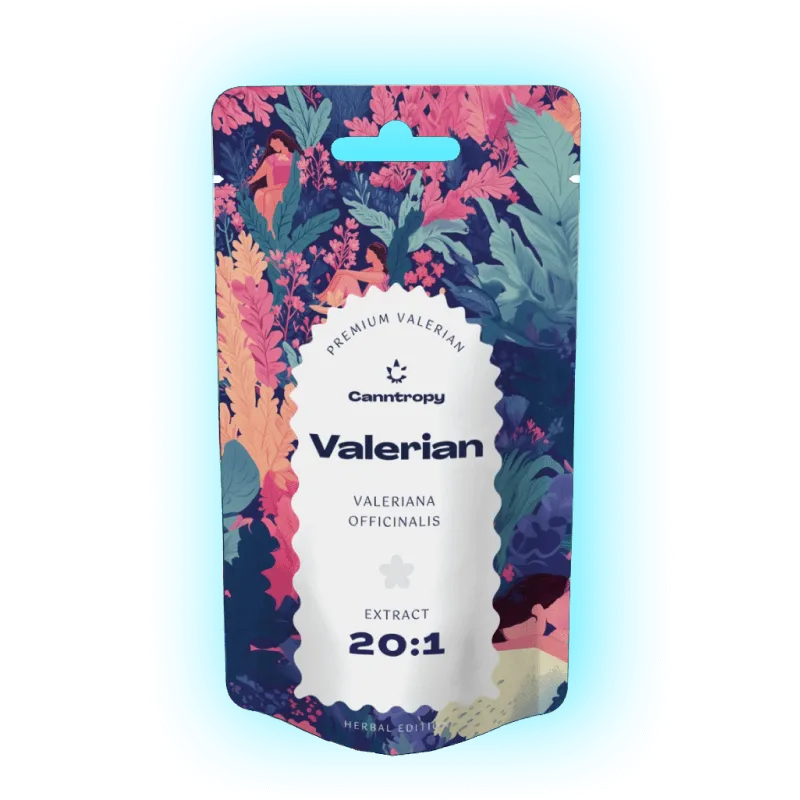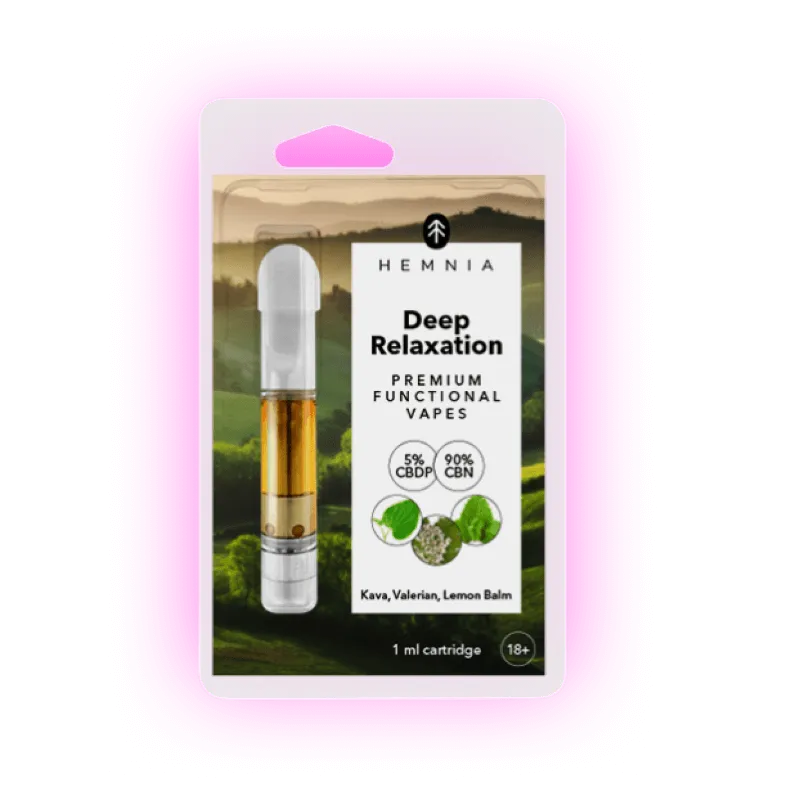Filters
3 products
HHCfriends ist ein HHC-Onlineshop mit vielen verschiedenen Produktkollektionenin Deutschland.
What is valerian?
Valerian, also known by its scientific name Valeriana officinalis, is an ancient medicinal plant that originally comes from Europe and Asia. Today, it's grown and valued worldwide, mainly for its calming effects. The plant is easy to spot thanks to its small, pink-white Flowers, but the real power is in the root. The root contains valuable compounds like valerenic acids, essential oils, and alkaloids, which are responsible for its effects. Valerian has been known as a remedy since ancient times and was used to help with sleep problems, nervousness, and stress.
In modern herbal medicine, valerian has established itself as a versatile option. You can find it in different forms like drops, tablets, capsules, and tea. Each form has its own benefits and can be used depending on your needs and preferences.
Valerian effects
The calming effects of valerian is well documented and mainly comes from the active compounds in the root. These compounds act on the central nervous system and help you relax by boosting the activity of GABA receptors in the brain. These receptors are responsible for blocking nerve signals and play an important role in managing stress. Valerian helps you fall asleep faster and improves sleep quality, without causing tiredness or grogginess the next day like synthetic sleep aids often do.
Valerian has proven especially helpful in the following areas:
• Sleep problems: Helps you fall asleep and improves deep sleep phases.
• Stress and nervousness: Eases inner restlessness and helps you stay calm.
Thanks to its calming effects, valerian is a natural option for people dealing with stress or mild anxiety who want a gentle, plant-based alternative.
Valerian drops: How to use and benefits
Although ashwagandha is generally considered well tolerated, some people may experience mild side effects. These are often digestive issues like nausea, diarrhea, or a slightly upset stomach. In some cases, ashwagandha can also cause mild drowsiness, especially if taken in higher doses. That's why you should always pay attention to the dosage and start slowly to see how well you tolerate it. Pregnant and breastfeeding women are usually advised not to take it, since the active ingredients could also affect the baby. If you're unsure or taking other medications, it's a good idea to check with a doctor first.
Valerian tablets: Pros and cons
Valerian tablets are one of the most common ways valerian is offered as a supplement. They're especially popular because they let you dose precisely and are easy to take. Valerian tablets usually contain an extract from the valerian root, either alone or combined with other calming plants like lemon balm or hops. A big plus of tablets is how convenient they are, especially for people who don't like the strong taste of valerian drops or tea.
Benefits of valerian tablets:
• Easy to take: No unpleasant taste, easy to swallow.
• Exact dosing: Lets you control exactly how much you take.
• Long shelf life: Tablets last longer than liquid extracts.
There are some downsides, though, since some people can be sensitive to the ingredients. Rarely, mild side effects like digestive issues can occur.
Valerian side effects: What to watch out for
Even though valerian is generally considered safe, side effects can happen, especially if you take high doses for a long time. Typical side effects include:
• Tiredness: Very sensitive people might feel a bit tired the next morning.
• Digestive issues: Rarely, nausea or stomach pain can occur.
• Interactions: If you take it with sedatives or alcohol, the effects can be stronger.
Follow the manufacturer's dosing instructions and check with a doctor if you're unsure, especially if you're already taking other medications.







